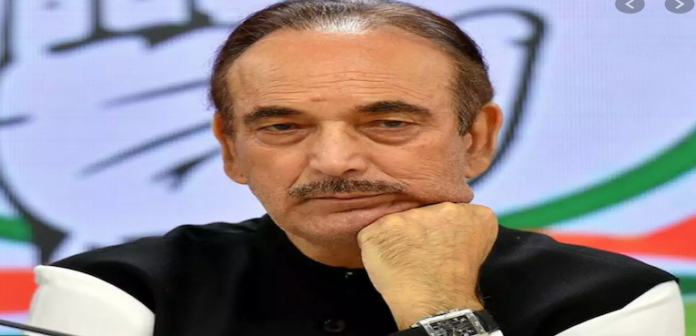After February 15, there will be no MP in the Rajya Sabha from Union Territory (UT) of Jammu and Kashmir as the members complete their terms.
The retiring members are Ghulam Nabi Azad of the Congress, Shamsher Singh Manhas of the BJP, and two of the People’s Democratic Party (PDP), Fayaz Ahmed Mir and Nazir Ahmad Laway. Azad has represented J&K in the House of Elders since 1996, barring the time he was Chief Minister from November 2002 to July 2008.
In the absence of a legislative assembly in the UT, no new members can be elected and this situation is likely to last for some time. It is a peculiar situation for the PDP as it does not have a member in the Lok Sabha either. As such, its representation in Parliament, almost uninterrupted after it rode to power in November 2002, is coming to an end after two decades.
Incidentally, J&K did not have any legislative assembly from 1990-96, and for some time at that juncture, it had gone unrepresented in the Rajya Sabha for some time. After the October 1996 assembly elections, Dr Karan Singh and Azad remained two of the best known faces from J&K in the Rajya Sabha for a very long time. It can be said that an era will come to an end with the completion of term by Azad as Dr Singh has already retired.
It bears mention here that a very peculiar method of sending MPs to both Lok Sabha and the Rajya Sabha prevailed for a long time in J&K. It was only in 1967 that the first Lok Sabha elections were held with members being nominated earlier!
Till then, all 10 MPs, six Lok Sabha members as also four Rajya Sabha members, were selected by the PM/CM of the state and sent to Parliament. On March 25, 1952, the Constituent Assembly of J&K, controlled by then Prime Minister Sheikh Mohammad Abdullah nominated 10 MPs.
Those nominated to Council of States (present Rajya Sabha) were Sardar Budh Singh, Colonel Pir Mohammad Khan, Rai Bahadur Pandit Anant Ram and Aga Syed Mohammad Shah Jalai. Those nominated for the House of the People (read Lok Sabha) were Maulana Mohammad Saeed Masoodi, Major Lachhman Singh Charak, Pandit Shiv Narain Fotedar, Choudhary Mohammad Shaffi and Khwaja Ghulam Qadir.
Incidentally, the Indian Constitution divided various states of the Union into A, B and C categories at that time (in 1952). J&K had then been placed in B category though it had a unique constitutional position due to Article 370. In his speech made on March 25, Sheikh Abdullah referred to it, and said: “Today if we are electing members of the Indian Parliament from this State, it is in consequence to that very status.”
The wheel seems to have come full circle from those days when 10 MPs were nominated by the Constituent Assembly of J&K in March 1952 to now when there is no legislature in January 2021! In the near future, whenever the new legislative assembly is constituted, it will not have control over even all-India services like IAS, IPS, IRS.
The end of Azad’s tenure in the Rajya Sabha will mean someone else from the Congress is soon to become the new Leader of Opposition in the House. Senior Congress leader Mallikarjun Kharge hailing from Karnataka is being considered front-runner for this post. He was earlier leader of the Congress party in the Lok Sabha from 2014 to 2019, a position held by Adhir Ranjan Chowdhury presently.
The last Rajya Sabha elections in Jammu and Kashmir were held in February 2015, under Governor’s rule, something unique again. At that time, the new legislative assembly had been elected after the November 2014 elections. However, there was no elected government in place as the elections had thrown a hung House.
The coming together of PDP and the BJP had catapulted Mufti Mohammad Sayeed to the CM’s post who assumed charge on March 1, 2015. This coalition had also ensured election of two PDP members and one BJP member in February 2015. Azad was the only Congress member who could reach the Rajya Sabha from J&K at that time with the help of the National Conference.
Sant Kumar Sharma, a seasoned journalist, is an authority on Jammu and Kashmir. Two of his books on Article 370 and Delimitation are already out. The third one on Indus Waters Treaty is now out and could be bought here.
Sant began as a teacher but after six years, joined the Indian Express, Chandigarh in 1990, the year when terrorism was taking its first step in J & K and soon there would be exodus of lakhs of Kashmiri Pandits from the Valley. He subsequently worked for The Statesman, The Times of India and Star News among others. He is based in Jammu since May 2000.


